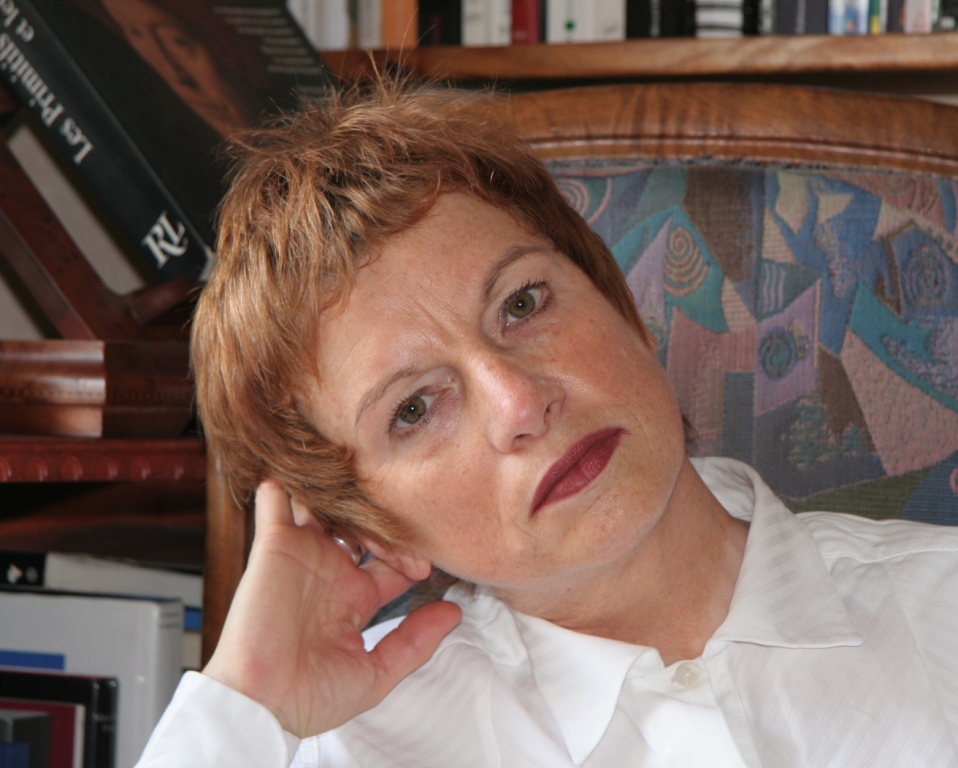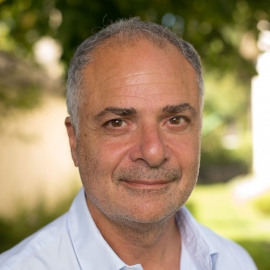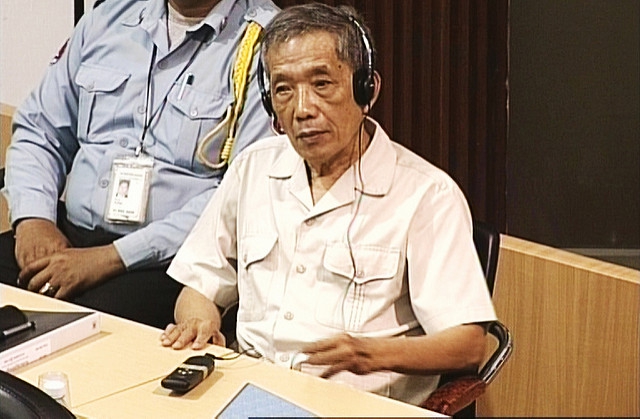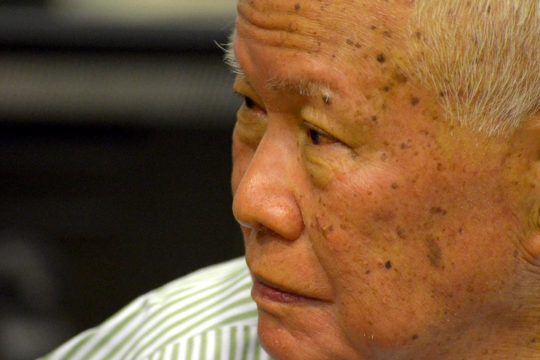Psychologist Françoise Sironi has been working with victims of mass violence for a quarter of a century. She was one of the founders of the Primo Levi Centre in Paris which provides care for torture victims.
More recently she provided psychological expertise for the trial in Phnom Penh of Duch, who was director of the infamous S-21 prison during the Khmer Rouge regime in Cambodia from 1975 to 1979. Some two million people were killed under the murderous Khmer Rouge regime of Pol Pot. As S-21 prison director, Duch was personally responsible for the torture and deaths of 17,000 people. Françoise Sironi wanted to find out what turns a person into a torturer. How did this man become so dehumanized? What psychological mechanisms might explain such a transformation? Françoise Sironi has just published a book on the psychology of those who commit crimes against humanity, “Comment devient-on tortionnaire” (ed. La Découverte). She spoke to JusticeInfo.net.
JusticeInfo.net: What do you think makes Duch both similar and different from other war criminals?
Françoise Sironi: What is different about Duch is that he admitted to 80% of the crimes of which he was accused. Perpetrators of war crimes most often remain in denial, although there are exceptions, like those who pleaded guilty before the International Criminal Tribunal for the former Yugoslavia. What Duch has in common with the vast majority of other war criminals is his psychological makeup. First of all, the fact that he grew up in a society that had lost all bearings, marked by corruption, impunity, humiliation and devaluation, generating a thirst for justice. Family history also plays a role with Duch, but it is not the main thing fuelling the transformation that led him to oversee a torture and death camp. To make up for his wounded ego, Duch, like Eichmann, became what I call a man of the system. He renounced individual identity for a collective identity. Like Eichmann, he was not a passive cog in the wheel but a man who became zealous and creative in his own way, protecting himself by banishing empathy for his victims.

How does this lack of empathy work?
Duch cut himself off from himself. Like many war criminals, his personality split and compartmentalized into parts watertight from each other. Otherwise, he would not have been able to order torture and murder like he did. He has no interest in having a unified consciousness, because that would mean realizing the seriousness of his crimes and could lead to psychological breakdown. Hence this split, which allows him to act in denial. He may confess to something big or small, but then retract 48 hours later. It is not a judicial strategy but the strength of denial taking him over once again.
How does a person become a war criminal?
American psychologist Stanley Milgram showed in a famous experiment that when people are put in a certain environment, they tend to submit to authority. He demonstrated, for example, that a group of people chosen at random agreed to follow orders from someone in a white coat, symbol of medical authority, rather than someone in a black or blue coat associated with supervising manual work. Submission to authority is one factor, but it is far from explaining everything. What makes the difference is the context, when in a conflict situation you have to make a choice. At that point, man is forced to leave his multiplicity behind. In extreme situations, he has to choose between killing or being killed. Some people prefer to accept death rather than inflict it. Others, however, when faced with a choice between two paths, lose reflexivity and become men of the system. They not only embrace a cause, but become its zealous agents. And that was what happened with Duch.
With regard to psychology, do you differentiate between someone like Eichmann who planned crimes on paper and a death camp director like Duch?
The planners, ideologues and architects of ethnic cleansing and genocide can allow themselves the luxury of living with abstractions. They do not see death being meted out, they do not see the blood flow. Duch’s boss Nun Chea said maybe a million more Cambodians should have been killed. Denial is easier for them than for Duch, who saw with his own eyes the killing that he ordered every day.
What purpose do you think the Duch trial served?
When a whole society has been ravaged by horrendous crimes, reconstruction is a very slow process. In Cambodia there was a wall of silence for 35 years after the Khmer Rouge crimes. Then, when the court was set up, there was much criticism. People said it was not the right time, that this justice was too expensive and that it was dangerous to revive the old demons. Then sometimes the same people who were criticizing the court could not stop watching the televised broadcasts of the trial. The trial had a cathartic effect. It awakened many memories for families, and it was not easy for them. Children learned that their mothers, fathers and other members of the family were victims or, on the other hand, were members of the Khmer Rouge at the time. We can understand that it was painful for families. But I think this trial was salutary. We know very well that if there is silence, trauma is transmitted from generation to generation.
Are the apologies of war criminals important for the victims?
Some victims hoped for real apologies from Duch, but not the cold recognition that he gave of his crimes. Others expected nothing and thought that it would only be crocodile tears anyway. For some victims, granting forgiveness is sometimes necessary, and for others it is simply impossible. In the end, it is a matter for the individual conscience of each person. The most important thing is that Duch’s trial took place, enabling a better understanding of the murderous dynamic of the time and punishment of one of the worst killers.
What did you learn from the hours that you spent with Duch?
I became even more aware of the absolute necessity to focus not only on victims – which is clear – but also on perpetrators of crimes, in a spirit both of prevention and reparation. We must help them to deconstruct their past, make them aware of the path that led them to commit criminal acts and to emerge from their lack of empathy. I have worked with Russian soldiers, some of whom committed crimes in Afghanistan. Our work consisted of talking and therapy. Some of them found not only an understanding that they had committed crimes but also gradual relief and a new positive impetus through new-found empathy. Working in groups and talking is essential to restore the bonds of collective history.






